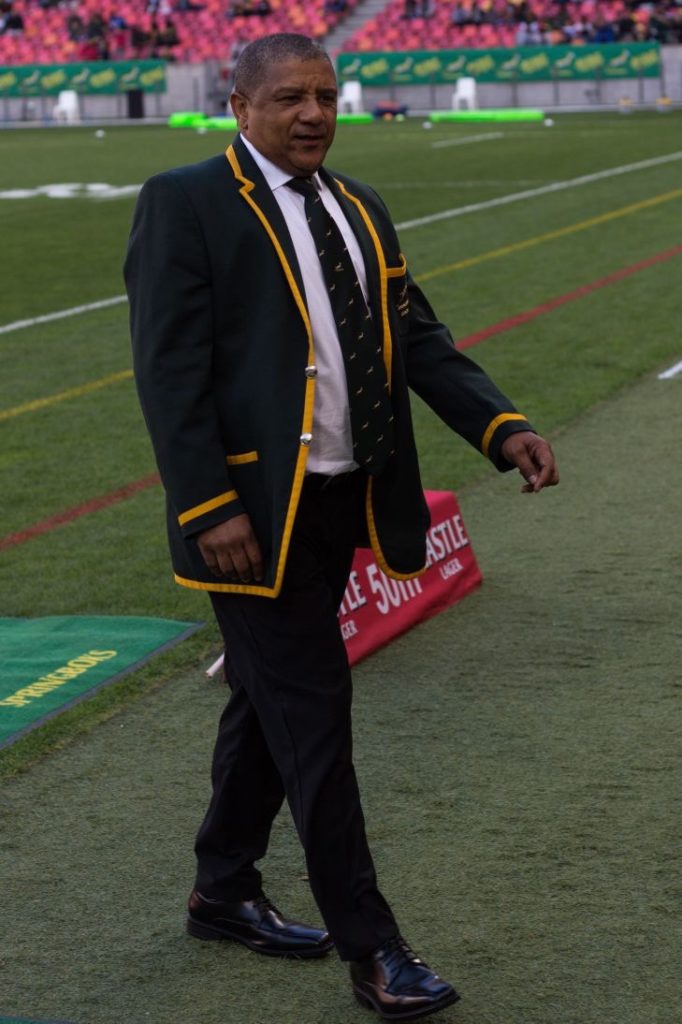With the announcement on Friday that Allister Coetzee and the South African Rugby Union (SARU) have parted ways, many will look at the two years that Coetzee was at the helm of the Springboks as a failure. While SARU has many deep rooted issues that need to be addressed before South African rugby can regain its former glory, it cannot be ignored that Coetzee coached the Springboks to a number of record defeats and should be held accountable as head coach.
Coetzee came into the position as head coach in rather uncertain circumstances. Heyneke Meyer had recently coached the Springboks to several record losses, including a first ever loss to Japan in the World Cup in 2015. As a result, the new Springbok coach would be tasked with a drastic turnaround in terms of form.
In addition to the poor form of a large number of players in the squad, the new coach would have to adapt to coaching a largely inexperienced side, as Meyer’s chargers mainly consisted of near-retirement former stars that seemed to be past their prime. The pressure on the incoming coach’s shoulder was immense.
The appointment of Coetzee was also under severe scrutiny, as the position was never advertised for application, but rather SARU approached whomever they thought deserved the position. In addition to this poor practice, Coetzee was not allowed to select his own backroom staff, which forced him to accept the support of coaches that he did not select, and may not have agreed with in terms of gameplan and coaching styles.
Before his dismissal, a letter written by Coetzee to his superiors criticized the circumstances that he was forced to live through as Springbok coach. Coetzee stated that he was “not allowed own management team … only Matt Proudfoot”, adding that he believed his “treatment since my return suggested that elements in SARU embarked on a deliberate attempt to undermine me from the word go and to create the public impression of incompetence on my part whilst wilfully obstructing my efforts to be successful.”
While there is some minor evidence to support Coetzee’s claims, mainly routed in his suspect hiring and the conditions he was forced to accept, he must accept some responsibility for the dismal performance of the Springboks under his care. Coetzee’s Boks have won a mere 11 out of 25 matches in the two years since his appointment, and has suffered record losses to New Zealand twice, a first defeat to Ireland on home soil, a first away defeat against Argentina, a first ever loss to Italy, and the worst year in Springbok history in which they only won 4 out of 12 matches.
Upon watching these performances, the route cause of these poor performances can be linked to the lack of a clear gameplan early on, as well as what appears to have been a lack of respect in the locker room. From the middle of last year, after the loss to injury of captain Warren Whiteley, the Springboks never seemed to be effectively led by the leadership group on the field. The players showed a lack of confidence in Coetzee and a lack of willingness to give him their all on the pitch in their repeated poor performances.
This combination of poor game and player management must account for at least some of the poor performances and historical losses that Coetzee’s Boks have experienced. He may have been “set up to fail”, previous Springbok coaches Peter de Villiers and Jake White agree, but if he was as good of a coach as his letter would have us believe he thinks he is, then he should have risen above the hardships, or else he can and must take responsibility. The fact is it was his responsibility to turn the Springboks around, and he did fail.
While it is unclear if the Springboks will be able to improve ahead of the 2019 World Cup, it is clear that “Toetie” was out of his depth as Springbok coach. He cannot shoulder the blame of diminishing the Springbok name alone, but he must take some responsibility as an authority figure and as a respectable head coach.
Photo: James Fowler


